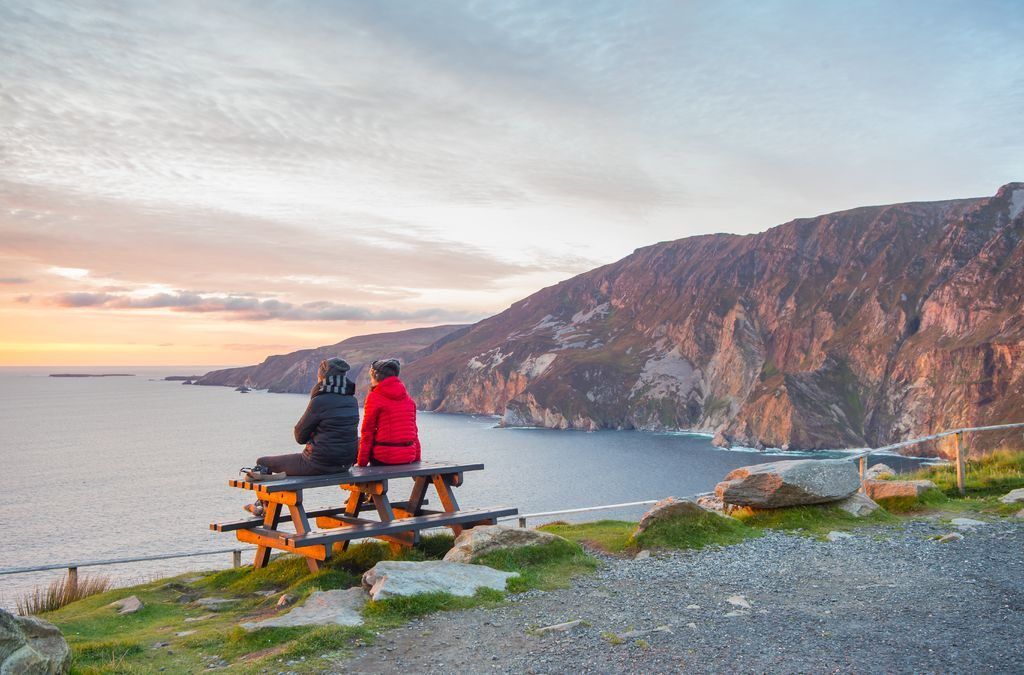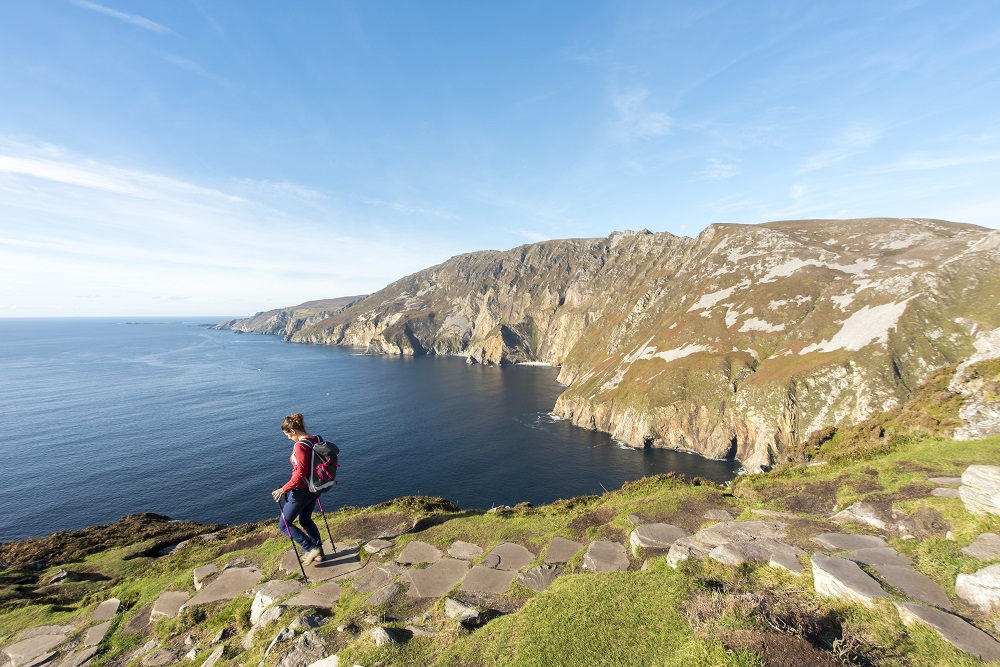THERE has been widespread debate after this week’s decision to implement parking charges for tourists at the stunning Sliabh Liag cliffs.
The charges are set to vary from €2 to €5 per hour to between €10 and €15 per day. Annual passes will also be available to purchase.
Sliabh Liag, one of the wonders of the Wild Atlantic Way, attract 160,000 visitors each year. Among the tallest sea cliffs in Europe, the majestic cliffs drop 600 metres into Donegal Bay and offers spectacular scenery.
The decision to introduce the parking charges has created a stir, with one visitor remarking that ’something priceless now has a price tag’.
“This is not an issue about the brutality of the costs of parking at 5 euro per hour or 15 euro per day but rather about the very morality of commercialising a resource that is classed by many as God given,” Paul Morgan from Cliffony in Co Sligo said in an email to Donegal Daily.
“100,000 years ago the cliffs of Sliabh Laig were carved out. Since then, until now, they have been a source of inspiration, retreat, rejuvenation for all who sought such there. Now, they are being both restricted and turned into a commodity. Something priceless now has a price tag. The opportunity to make money trumps all. Its a case of the old Thatcherite economics where we see the price of everything and the value of nothing.

“There is no doubt that traffic regulation is needed but there is also no doubt that this is achievable without need to include profit and an extra gateway tax. Taxes are already paid and national grants already given for the upkeep of the area.”
A period of public consultation followed the initial proposals in December 2019 regarding the new systems.
Residents from the parishes of Glencolmcille and Kilcar will be able to access the car parks free of charge, it has been confirmed.
Locals have been assured by Donegal County Council officials that any income from the car parks will be redistributed into the area.
Tags:Dear Sir,
How different would it have been yesterday if the Donegal Council representatives on national radio had spoken of a decision not to follow the trend of commodifying places of national heritage but instead promoted Donegal as thee place to wander safely and free?
Dozens of listeners messaged Adrea Gilligan’s talkshow angry about the diminution of access to the tallest cliffs in Ireland.
This is not an issue about the brutality of the costs of parking at 5 euro per hour or 15 euro per day but rather about the very morality of commercialising a resource that is classed by many as God given.
100,000 years ago the cliffs of Sliabh Laig were carved out. Since then, until now, they have been a source of inspiration, retreat, rejuvenation for all who sought such there.
Now, they are being both restricted and turned into a commodity. Something priceless now has a price tag. The opportunity to make money trumps all. It’s a case of the old Thatcherite economics where we see the price of everything and the value of nothing.
There is no doubt that traffic regulation is needed but there is also no doubt that this is achievable without need to include profit and an extra gateway tax. Taxes are already paid and national grants already given for the upkeep of the area.
Rather the real issue here is one of soul and wellbeing. Ireland’s national public beauty spots are being hollowed out. The right to roam on ancient terrain is being eroded.
At any time this is detrimental but at a time when emotional fragility and the need to be able to find places of solace is so evident then curtailing access to resources now is contributing to social pain.
Even with vaccinations the psycho social effects of a pandemic last for 2 to 3 years. Suicides and mental illness have risen by 19 percent in the past year.
On the other hand, Imagine if Donegal Council publicises a Come Ye All to Donegal message of “park, roam, revive your spirits for free” message and became a national place of wellbeing.
Paul Morgan
Creevymore
Cliffony
Co Sligo








